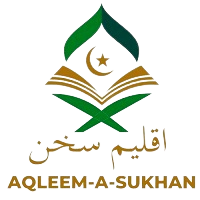The Role of Urdu and English in Shaping the Muslim Identity in the 21st Century
Keywords:
Urdu, English, Muslim identity, language, culture, globalization, education, media, arts.Abstract
The 21st century has witnessed a significant transformation in the Muslim identity, shaped by the interplay of Urdu and English languages. This essay explores the complex relationship between these two languages and their influence on the evolving Muslim identity. Urdu, the lingua franca of South Asia, has traditionally been associated with Islamic culture and heritage. In contrast, English, the global language of commerce and communication, has gained prominence in recent decades, particularly among Muslim youth. This linguistic shift has led to a renegotiation of Muslim identity, as individuals grapple with the question of how to reconcile their cultural and religious roots with the demands of a globalized world. This essay examines the ways in which Urdu and English have shaped the Muslim identity in various spheres of life, including education, media, and the arts. It also considers the challenges and opportunities posed by the increasing use of English among Muslims. By analyzing the linguistic landscape of the 21st century, this essay provides insights into the ongoing transformation of the Muslim identity.





